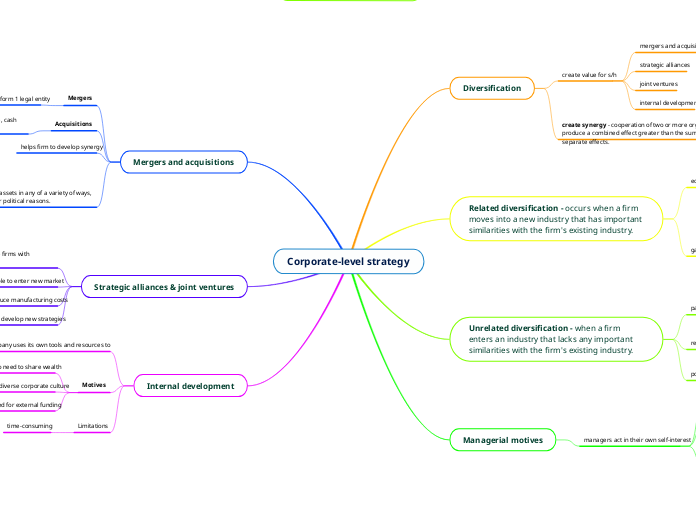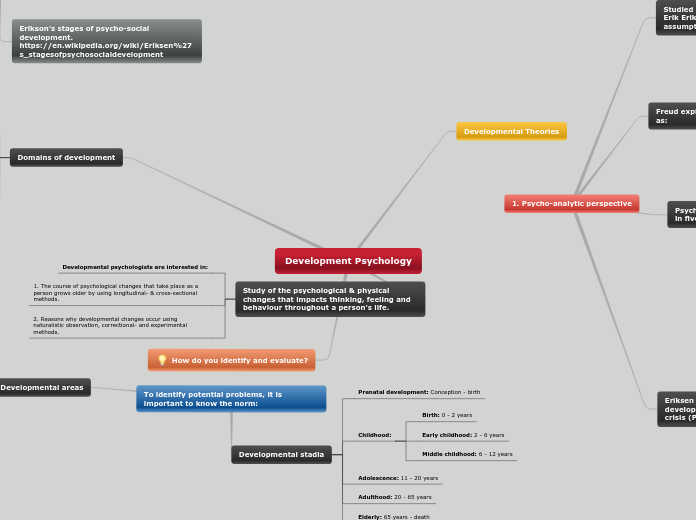GROUP 4 - MAF661 CHAPTER 6
Corporate-level strategy
Internal development
Limitations
time-consuming
Motives
no need for external funding
no need to merge diverse corporate culture
no need to share wealth
occurs when a company uses its own tools and resources to expand
Strategic alliances & joint ventures
able to develop new strategies
able to reduce manufacturing costs
able to enter new market
cooperative relationship between 2 or more firms with potential advantage
Mergers and acquisitions
Divestment - the disposal of assets in any of a variety of ways, usually for ethical, financial, or political reasons.
objectives
freeing up resources to spend on more attractive alternatives
redirecting focus on the firm's core business
raising cash to help fund existing business
cutting financial losses
helps firm to develop synergy
Acquisitions
one firm buying another either through stock purchase, cash or issuance of debt
Mergers
combination of 2 firms to form 1 legal entity
Managerial motives
managers act in their own self-interest
use of antitakeover tactics
poison pills
golden parachutes
green mail
excessive egotism
growth for growth's sake
Unrelated diversification - when a firm enters an industry that lacks any important similarities with the firm's existing industry.
portfolio management
Boston Consulting Group's (BCG) growth
restructuring
management restructuring
redistribute assets & capital
parenting
create value through management expertise and competent central functions
Related diversification - occurs when a firm moves into a new industry that has important similarities with the firm's existing industry.
gain market power by
vertical integration - becoming its own supplier/distributor
forward integration
backward integration
pooled negotiating power - gaining greater bargaining power with suppliers and customers
economies of scope
enhance differentiation
share related activities
leverage core competencies
Diversification
create synergy - cooperation of two or more organizations to produce a combined effect greater than the sum of their separate effects.
create value for s/h
internal development
joint ventures
strategic alliances
mergers and acquisitions








